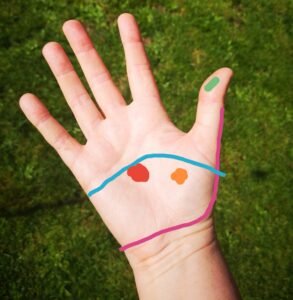Introduction
In a fast-paced world where stress and anxiety have become commonplace, the pursuit of relaxation and improved mental health is more important than ever. While there are various methods and therapies available, one ancient practice that has gained popularity in recent years for its potential benefits is reflexology. This holistic approach to wellness is rooted in the belief that the feet and hands are interconnected with various organs and systems in the body. In this blog post, we will explore how reflexology can help promote relaxation and enhance mental well-being.
The Basics of Reflexology
Reflexology is an ancient healing practice that dates back to ancient Egypt, China, and India. It is based on the theory that specific reflex points on the feet, hands, and ears correspond to different parts of the body. By applying pressure to these reflex points, reflexologists believe they can stimulate energy flow, improve circulation, and promote relaxation.
How Reflexology Promotes Relaxation
1. Stress Reduction: One of the primary benefits of reflexology is its ability to reduce stress and induce relaxation. By targeting stress points on the feet and hands, reflexologists can release tension and promote a sense of calm.
2. Improved Circulation: Reflexology techniques stimulate blood flow and lymphatic drainage, which can help remove toxins from the body. This improved circulation contributes to a feeling of lightness and relaxation.
3. Pain Relief: Reflexology is known to alleviate various types of pain, including headaches, back pain, and muscle tension. When pain is reduced, relaxation follows naturally.
4. Balancing Energy: According to traditional Chinese medicine, the body has a vital energy known as Qi or Chi. Reflexology aims to balance this energy, which is believed to contribute to overall well-being and relaxation.
Enhancing Mental Health Through Reflexology
1. Stress Management: Chronic stress can take a toll on mental health. Reflexology’s stress-reducing effects can help individuals manage stress more effectively, leading to improved mental well-being.
2. Anxiety Reduction: Many people report feeling less anxious and more centered after a reflexology session. The relaxation response triggered by reflexology can help individuals cope with anxiety.
3. Better Sleep: Insomnia and poor sleep quality are often linked to mental health issues. Reflexology’s ability to promote relaxation can lead to better sleep patterns and improved mental clarity.
4. Mind-Body Connection: Reflexology encourages individuals to become more in tune with their bodies. This heightened awareness can lead to a better understanding of the mind-body connection, which is crucial for mental health.
Conclusion
In a world where the demands of modern life can often overwhelm us, finding effective methods to promote relaxation and enhance mental health is invaluable. Reflexology, with its ancient roots and modern applications, offers a holistic approach that targets both physical and mental well-being. While it is not a replacement for medical treatment, reflexology can be a valuable addition to a comprehensive wellness strategy. So, why not give it a try and experience the soothing touch of reflexology for yourself? Your body and mind may thank you for it.
#mentalhealth #reflexology #shrewsbury

